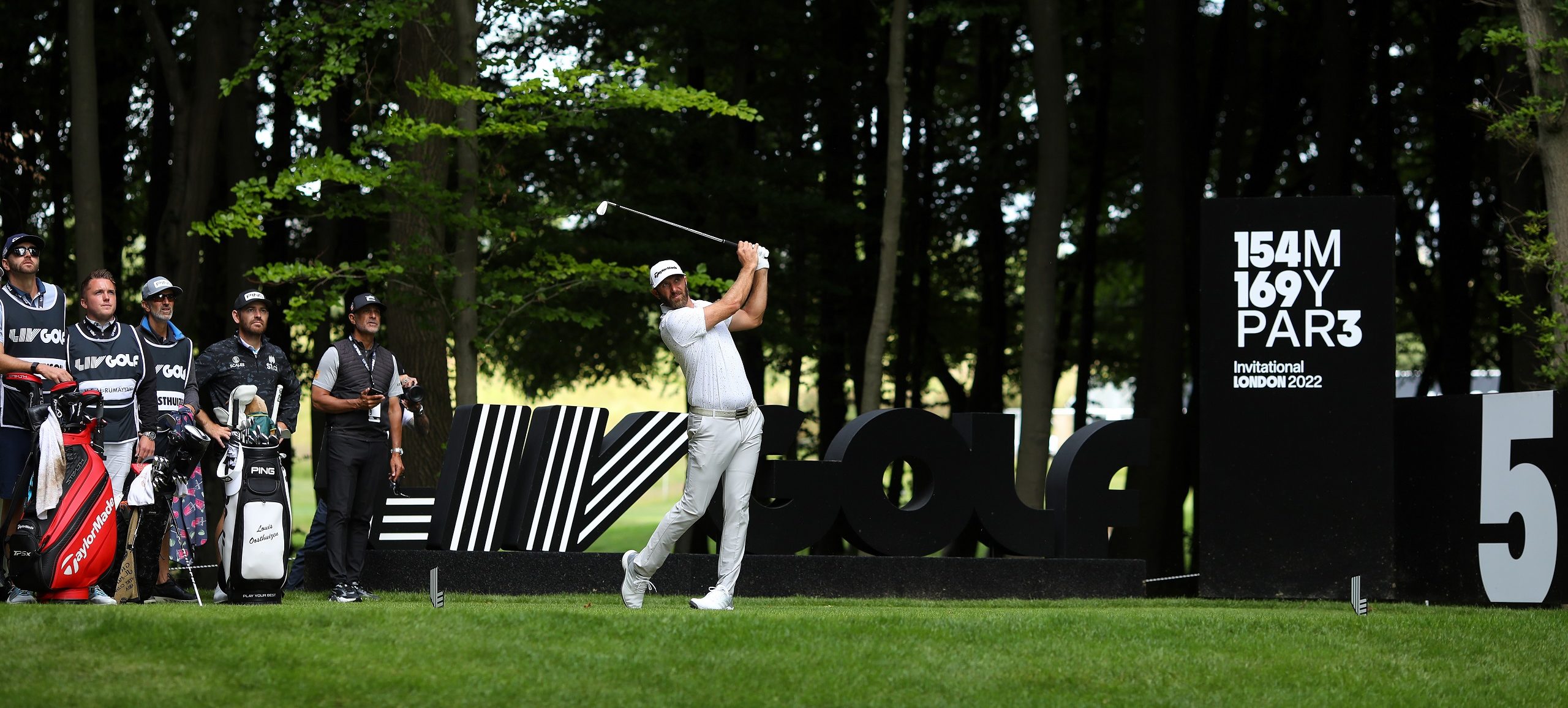Saudi Arabia is hoping to score a hole-in-one with a high-profile golf tournament that could reap massive economic benefits and boost its diplomatic standing on the world stage.
The LIV Golf Invitational Series is set to host eight tournaments over the course of the year, with five of those taking place in the US and the rest internationally, including one event in Jeddah, Saudi Arabia.
The tournament in Jeddah will take place Oct. 14-16 and will feature a total of 48 players. Prizes totaling $25 million will be split among the players based on their rankings in the tournament. The eighth and final event will be held at Trump National Doral in Miami at the end of October; it will have a total prize fund of $50 million.
Overall, the kingdom is spending $2 billion on the splashy event, according to Forbes.
Prof. Simon Chadwick, director of the Center for Eurasian Sport Industry at Emlyon Business School, based in Paris and Shanghai, believes that Saudi Arabia is attempting to emulate Dubai, which is a regional tourism powerhouse.
“Tourism has an economic value and that economic value manifests itself in terms of jobs and spending and contribution to national outputs,” Chadwick said. “If we look at the UAE within the last 12 months, hotel bookings there have risen by 21%. What people typically do when they go to Dubai is they play golf.”
The goal is to diversify and boost the Saudi domestic economy, in addition to bolstering its image and reputation in the international arena.
“Golf is typically associated with more affluent members of the global community, very often people who are decision-makers, business owners, politicians, and so forth,” he said. “It also is a means of which to create networks of influence. Certainly in Europe and NA [North America], business deals are cut on the golf course so it’s almost a form of diplomacy for Saudi Arabia to engage with important audiences on the golf course.”
This holiday season, give to:
Truth and understanding
The Media Line's intrepid correspondents are in Israel, Gaza, Lebanon, Syria and Pakistan providing first-person reporting.
They all said they cover it.
We see it.
We report with just one agenda: the truth.


The kingdom may also be taking a page out of Qatar’s playbook, other experts believe.
Dr. Danyel Reiche is a visiting professor at Georgetown University Qatar and co-author of a new book on the World Cup in Qatar titled Qatar and the 2022 FIFA World Cup: Politics, Controversy, Change (Palgrave Macmillan: 2022).
“Saudi Arabia recognized that Qatar’s soft power strategy has worked pretty well,” Reiche told The Media Line. “Saudi Arabia was focusing in the past on hard power and they have recognized that in global affairs that they need to focus on soft power as well.”
The deployment of soft power has proven to be a hard pill to swallow for some. In fact, Saudi Arabia has been accused of “sportswashing”: attempting to divert attention from its spotty human rights record.
But Chadwick argued that those accusing Saudi Arabia of utilizing golf for sportswashing purposes are oversimplifying the situation.
“Many countries around the world, including my country Britain, deploy sport for soft power purposes,” he said. “I think sport is also a means through which to engage in diplomacy and build international relations.”
Others are less concerned with human rights and more concerned with losing out on exclusivity.
The PGA Tour, which organizes the main professional golf tour in North America, said it would be suspending all players competing in the LIV tournament, including legendary golfers Phil Mickelson and Dustin Johnson.

Dustin Johnson of the United States on the fifth hole ahead of the LIV Golf Invitational at The Centurion Club on June 8, 2022 in St. Albans, England. (Charlie Crowhurst/LIV Golf/Getty Images)
LIV Golf called the PGA’s decision “vindictive” and said, “It deepens the divide between the Tour and its members.”
These controversies notwithstanding, the Saudi-backed tourney is hoping to return again next year.
“While our schedule will go from eight to 10 events in 2023, specific event information, including any tournament sites returning for another year, will be announced later this season,” Maureen Radzavicz, director of tournament media operations at LIV Golf Investments, told The Media Line.
Investing in such high-profile sports is at the crux of Saudi Arabia’s Vision 2030 campaign, which aims to modernize the country’s economy.
A report published by Ernst & Young last September showed that the sports sector contributed $6.9 billion to the country’s GDP in 2019, a huge increase over the $2.4 billion it contributed in 2016.
“Sports are a fantastic vehicle to put Saudi Arabia on the map, attract visitors to the kingdom, and encourage them to do tourism in connection with their sports-related visit,” Laurent Viviez, a senior partner at Ernst & Young Middle East, told The Media Line. “Golf is a highly attractive sports genre considering its ability to generate strong viewership /attendance numbers, particularly within higher socio-economic segments.”